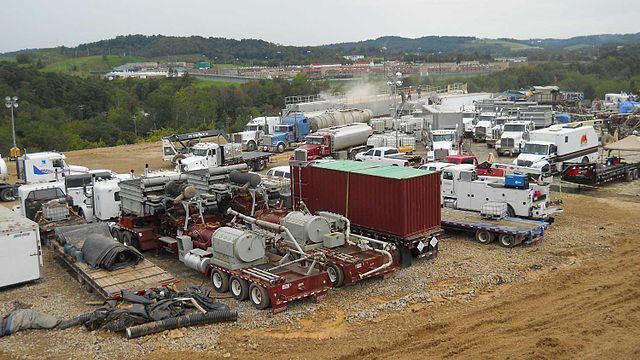Pennsylvania
DOJ's silence on background checks source of ongoing frustration for Pennsylvania nurses – Pennsylvania Capital-Star

“An acute frustration” is how Pennsylvania Secretary of the Commonwealth Al Schmidt described his staff’s effort to work with federal officials to allow Pennsylvania nurses to use their licenses in other states.
Since September, nurses licensed in each of Pennsylvania’s neighboring states except New York have been able to work in Pennsylvania if they have obtained a multistate license in their home state.
And although Pennsylvania passed legislation in 2021 that would allow Pennsylvania licensed nurses to work in other states, a communication breakdown between the Department of State and the FBI remains a barrier to full reciprocity, Schmidt said during a House Appropriations Committee hearing on Tuesday.
Likewise, Pennsylvania’s participation in the Interstate Medical Licensure Compact, which would allow Pennsylvania-licensed physicians to work in other states, has been in limbo since legislation authorizing Pennsylvania to join became law in 2016.
State Rep. Kristin Marcell (R-Bucks) said the partial implementation of the compact, combined with other licensing challenges, has hurt Pennsylvania nurses and nursing school graduates.
“The only thing worse than your department’s inability to get these licensure compacts implemented is partially implementing the compact to give all of the benefits to out-of-state nurses while leaving our Pennsylvania nurses at a disadvantage,” Marcell said.
Rep. Kyle Mullins (D-Lackawanna) said he wants to pass legislation that would provide recognition of dental and dental hygienist licenses across state lines, but that, like the other licensure compacts, would be held up by the impasse with the FBI.
The Interstate Nurse Licensure Compact is an agreement between 41 states and U.S. territories to recognize the licenses of nurses from other states.
In September, Pennsylvania partially implemented the compact to allow out-of-state nurses to work here in an effort to address a workforce shortage. But Schmidt said Tuesday that the FBI has not granted the Department of State access to its background check fingerprint database, which is necessary for Pennsylvania to fully implement the compact.
Schmidt said the partial implementation of the nursing compact was something that the National Council of State Boards of Nursing allowed Pennsylvania to do, but is not an alternative to fully implementing the compact.
When that could happen is up to the U.S. Department of Justice , Schmidt said
“Our ability to contact the people who are making the ultimate decision of whether we can implement the nursing compact or not is limited,” Schmidt said, adding that the department is required to go through the state police to contact the FBI regarding background checks.
Schmidt said the Department of State last heard from the FBI in November and has also asked members of Pennsylvania’s congressional delegation to contact the DOJ to hurry the process.
U.S. Sen. Bob Casey’s office has been in touch with the FBI and the agency has not provided a timeline for approval, a spokesperson said. Casey’s office is looking into other solutions, the spokesperson added, without elaborating.
Noting that Schmidt had given a similarly uncertain assessment on implementing the interstate compacts during his first appearance before the Appropriations Committee in 2023, Marcell asked Schmidt whether she would be asking the same questions next year.
“I hope for your sake, ours, Pennsylvania’s, and its nurses that that will not be the case,” Schmidt said. “But I want to assure you the Department of State has done everything it can to possibly move that along. It has been, again, an acute frustration.”

Pennsylvania
Massive Lithium Find Made in Pennsylvania

Researchers in Pennsylvania say they didn’t have to dig to find a huge source of a critical mineral. In a study published in the journal Scientific Reports, the University of Pittsburgh researchers say wastewater from fracking in the state could provide up to 40% of the national demand for lithium, a key element in rechargeable batteries. Much of America’s lithium currently comes from countries including China and Chile, but the government is seeking to make the supply 100% domestic by 2030, CBS Pittsburgh reports.
- A beneficial use of waste: “This is a waste stream, and we’re looking at a beneficial use of that waste,” says lead researcher Justin Mackey, a National Energy Technology Laboratory scientist. He says researchers knew that wastewater from Marcellus Shale gas wells picked up some minerals from the shale, but until now, they “just didn’t know how much was in there,” the Pittsburgh Tribune-Review reports. He says the wastewater “has as high lithium concentrations as both brine mining operations in Arkansas and in Chile.”
Pennsylvania
Here's How Much Teachers In PA Make, New Data Shows

PENNSYLVANIA — Even with recent pay increases, teacher salaries in Pennsylvania and elsewhere around the country haven’t kept pace with inflation over the past decade, according to a new report from the National Education Association.
When adjusted for inflation, the nation’s K-12 public school teachers made 5 percent less than they did 10 years ago, according to the report. The report is based on 2022-23 school year data and projected 2023–24 data.
Pennsylvania’s average starting teacher salary of $49,083 in 2022-23 ranked No. 12 in the country, while the average teacher salary of $74,945 ranked No. 11, the report showed.
The average minimum living wage is $57,664 in Pennsylvania, for a pay gap of 84 cents in 2022-23.
Educational support personnel in Pennsylvania earned an average of $35,500 during the same period, ranking No. 14.
Per-pupil spending in Pennsylvania for the 2022-23 school year was $20,264, which ranked No. 12 in the nation.
Noting that low pay limits the ability of schools to attract and retain high quality teachers, the NEA warned a widespread educator shortage is looming amid sagging morale across the profession.
Nationwide, the recent teacher pay hikes represent the largest year-over-year increase in more than a decade. But educators overall are inadequately paid and greater investments in public education are needed to maintain the momentum, the national teacher’s union said.
Overall, the report showed:
Pennsylvania
Bill to Establish a Permanent WIC Advisory Board in Pennsylvania Set to Become Law – BCTV

by Senator Judy Schwank
On Tuesday, May 21, the Pennsylvania House of Representatives approved SB 721, which establishes a permanent advisory board for the Special Supplemental Nutrition Program for Women, Infants, and Children (WIC).
WIC offers federal funding to states to provide supplemental foods, health care referrals, and nutrition education to low-income pregnant, breastfeeding, and postpartum women, as well as to infants and children under the age of five who are identified as being at nutritional risk.
In response to declining enrollment and input from providers, state Sen. Judy Schwank (D-Berks) and state Sen. Michele Brooks (R-Mercer) introduced the bill to create the Women, Infants, and Children State Advisory Board (WICSAB). The board will review the impact of the WIC program and recommend improvements to ensure as many Pennsylvanians as possible have access to the health services provided by WIC.
A companion to SB 721 was introduced in the Pennsylvania House of Representatives by Rep. Donna Bullock (D-Philadelphia) and Rep. Johanny Cepeda-Freytiz (D-Berks). The lawmakers applauded the passage of the bill and highlighted the impact it will have on the health and well-being of countless Pennsylvanians.
Schwank highlighted the importance of this bi-partisan legislation and thanked Brooks for partnering with her on the bill.
“Ensuring that infants and children get a healthy start in life is one of the most impactful things we can do as state legislators,” said Schwank. “I’ve seen firsthand the positive impact WIC makes in the lives of my constituents. The advisory board will make sure we are evolving to meet the needs of Pennsylvanians and prevent further participation declines in the commonwealth.”
“This legislation will help to ensure that we’re taking full advantage of the federal funding we receive for WIC in the commonwealth,” said Bullock. “As things stand, we are failing to maximize the benefits that WIC can provide for our single parents and struggling families. By establishing this board and modernizing and updating the process from top to bottom, we can get families who need assistance the support they need.”
“We must work together to improve the WIC program in Pennsylvania to better support our most vulnerable families,” said Cepeda-Freytiz. “Enrollment has steadily decreased over the past four years because our system is outdated and fails to serve those in need. Families struggle with a cumbersome process that requires up to seven forms of documentation for eligibility. The passing of SB 721 will start to address these issues by establishing a WIC Advisory Board and streamlining the application process to better support women and children.”
-

 News1 week ago
News1 week agoThe states where abortion is on the ballot in November : Consider This from NPR
-

 News1 week ago
News1 week agoRead Prosecutors’ Filing on Mar-a-Lago Evidence in Trump Documents Case
-

 Politics1 week ago
Politics1 week agoMichael Cohen swore he had nothing derogatory on Trump, his ex-lawyer says – another lie – as testimony ends
-

 Politics1 week ago
Politics1 week agoAnti-Israel agitators interrupt Blinken Senate testimony, hauled out by Capitol police
-

 World1 week ago
World1 week agoWho is Ali Bagheri Kani, Iran’s acting foreign minister?
-

 World1 week ago
World1 week agoSerbian parliamentary minnow pushes for 'Russian law' equivalent
-
Technology1 week ago
Microsoft’s new Windows Copilot Runtime aims to win over AI developers
-

 News1 week ago
News1 week agoBuy-now, pay-later returns and disputes are about to get federal oversight



















/cdn.vox-cdn.com/uploads/chorus_asset/file/25458338/DSC00620.JPG)